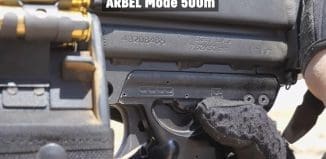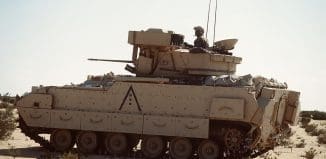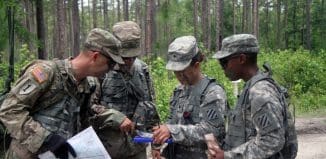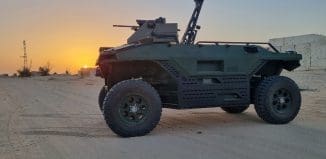Sensor Will Optimize Warfighters Performance Under Demanding Conditions
This post is also available in:  עברית (Hebrew)
עברית (Hebrew)
The U.S. military has a great interest in the comprehensive measurement and tracking of metabolism, both for optimizing warfighters performance under demanding physical conditions and for maintaining the health and wellness of forces during and after their military careers.
A new research has been trying to create a low-cost personal metabolic sensor and an associated metabolic fuel model. The Carbon dioxide/Oxygen Breath and Respiration Analyzer (COBRA) enables individuals to make on-demand metabolic measurements simply by breathing into it.
The research was conducted by MIT Lincoln Laboratory, in collaboration with the U.S. Army Research Institute of Environmental Medicine and the Marine Expeditionary Rifle Squad.
“Besides assessing performance of soldiers in the field, the COBRA can be applied to broader purposes, such as training athletes for high-endurance activities, guiding weight loss by quantifying the impact of dietary and exercise regimens, or identifying nutritional imbalances,” says Kyle Thompson, a member of the development team from Lincoln Laboratory’s Mechanical Engineering Group.
Since the early 20th century, scientists have been using indirect calorimetry (IC) to calculate individual energy expenditure and metabolic rates. This method measures the ratio of carbon dioxide to oxygen in exhaled breath, which can be used to measure the levels of carbohydrates and fats being used by the body to meet metabolic energy needs.
Information about energy expenditure rates is valuable for setting reasonable physical standards within the military. For example, limits on the distance and speed of foot marches can best be established by quantifying metabolic workloads of soldiers.
According to MIT website, the Soldier 2020 program is currently employing metabolic energy measurement to help establish job-related fitness requirements.
“For high-performance athletes or active-duty soldiers, optimally matching nutritional intake to the demands of a specific activity can improve performance and increase the likelihood of successful mission completion,” says Gary Shaw, principal investigator on the laboratory’s COBRA team. Physically demanding tasks can lead to glycogen depletion, which has a negative impact on performance. By tracking energy expenditure in real-time, soldiers could detect and avoid the onset of low glucose levels associated with glycogen depletion as well as other metabolic complications, such as heat stress.
While existing mobile IC sensors can make physiological measurements, they are expensive and complex to calibrate; consequently, their application has largely been limited to clinical studies, high-performance athletics, and field testing with small groups of subjects over limited periods of time.
The COBRA sensor is smaller, simpler to use, and less costly to manufacture than existing IC sensors, enabling the measurement of individual energy expenditure for dozens of soldiers in a military field unit throughout the day. Lincoln Laboratory researchers hope to use such measurements to refine the personalized metabolic fuel model for individuals, track nutritional needs, and assess the impact of training on the individual’s metabolic efficiency and endurance.
Beyond its use in studies of the performance of soldiers and athletes, the COBRA sensor and associated metabolic model can be applied to the management of the general population’s metabolic health. It is anticipated that the COBRA sensor and metabolic model can be used to tailor dietary and exercise regimens for managing weight, inferring blood glucose and glycogen storage levels, and creating public databases on metabolic wellness and trends.






























